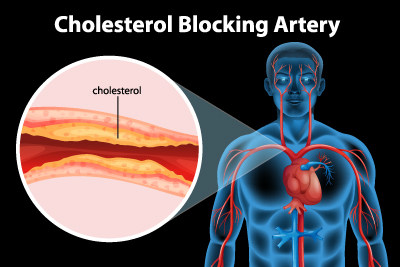Research News

Awareness to Adherence
Fleming's Sanofi-backed Project Aims to Increase Prescriber Adoption of Clinical Guidelines, Improve Patient Adherence to Statin Therapy
A UH College of Pharmacy researcher is exploring the factors resulting in sub-optimal prescribing of statin therapy to control high cholesterol with the aim of developing an educational webinar to improve prescriber implementation of the clinical guidelines and ultimately medication adherence by patients.
Backed by a one-year, $98,314 grant from Sanofi US, UHCOP Assistant Professor Marc L. Fleming, Ph.D., MPH, R.Ph., is working with fellow faculty member Susan M. Abughosh, Ph.D., and Pharmaceutical Health Outcomes and Policy doctoral candidate Mark Hatfield, M.S., to tackle the issue of underutilization – by virtue of underprescribing – of statin therapy.
Despite its preventive and therapeutic benefits backed by both evidence and clinical guidelines, research indicates that the lipid-lowering agents are under-prescribed by physicians who are either unable to access published guidelines or too busy – or otherwise reluctant – to translate the recommendations into practice.
When statins are prescribed, the regimens may be discontinued or dosages are lowered – particularly among older adults – due to patient complaints of side effects, such as muscle pain. Although the guidelines recommend halting the statin therapy to determine the cause of muscle pain, statin therapy often is not reinstated following a test period, even if the side effects are found to be unrelated.
"Simple awareness of new guidelines – published roughly every 10 years – does not always lead to adoption," Fleming said. "Guideline adoption requires the acquisition of specific knowledge and skills as well as procedures to facilitate the incorporation of these recommendations into daily practice. In addition, many physicians' beliefs and attitudes prevent them from incorporating the recommendations."
 The study's theoretical framework is the Awareness to Adherence Model, which postulates that several cognitive sequential and behavioral steps are required of physicians before they comply with recommended guidelines. These steps include awareness, intellectual agreement, decision to adopt and incorporate, and adherence. The model postulates that progression among the steps can halt at any point for many reasons, resulting in non-adherence.
The study's theoretical framework is the Awareness to Adherence Model, which postulates that several cognitive sequential and behavioral steps are required of physicians before they comply with recommended guidelines. These steps include awareness, intellectual agreement, decision to adopt and incorporate, and adherence. The model postulates that progression among the steps can halt at any point for many reasons, resulting in non-adherence.
The study's specific objective is to assess the impact of the educational webinar on statin prescribing. The long-term goal of the educational webinar would ultimately lead to improved patient adherence among patients enrolled in a Texas Medicare Advantage plan related to statin therapy.
The project also will involve collaboration with Cigna HealthSpring, a Texas-based Medicare Advantage provider, and Michael W. Bungo, M.D., a cardiologist with The University of Texas Health Science Center at Houston.
Cigna HealthSpring is providing information from patients with sub-optimal statin adherence, which will provide insight into specific reasons and barriers to statin therapy adherence. This information can then be used to facilitate some of the webinar content and possibly give physicians a better perspective of patients' challenges to statin therapy adherence.
Fleming said a questionnaire will be developed to capture physicians' awareness, agreement, adoption and adherence to the American College of Cardiology and the American Heart Association's 2013 guidelines for cholesterol treatment, demographics and practice characteristics. The survey will be distributed to approximately 300 Cigna HealthSpring-affiliated physicians practicing in the Rio Grande Valley and Greater Houston area.
The survey responses, information from Cigna HealthSpring patients identified as non-statin adherent, information from the 2013 statin guidelines, and protocols for managing statin intolerance will be used to develop an educational webinar for physicians. The webinar also will include concerns reported in literature, including patient anxiety about adverse events, desire for more information, and uncertainty about the benefits of statins.
A follow-up questionnaire will be administered to the participating physicians, and pre- and post-webinar awareness, agreement, adoption and adherence to guideline recommendations will be evaluated and compared.
"We anticipate guideline adherence will lead to improvement in patient outcomes as well as decreased healthcare expenditures related to emergency department visits and hospitalizations associated with CVD," Fleming said. "Ultimately, we're hoping to 'move the needle' to improve patient statin adherence. If pharmacists and doctors are on board with recommended guidelines, patients have even more opportunities to be adherent."
– by Kyle Fake for UHCOP